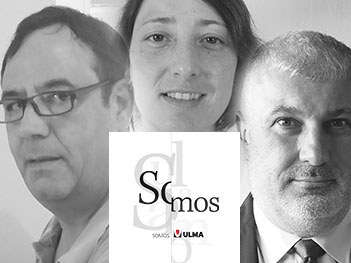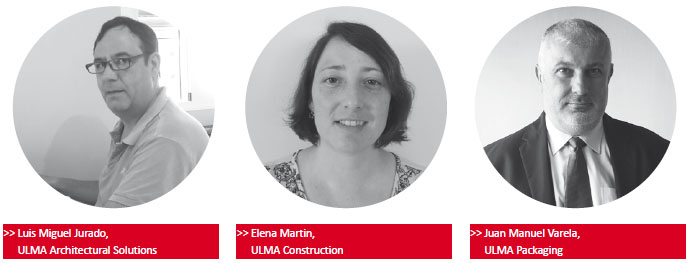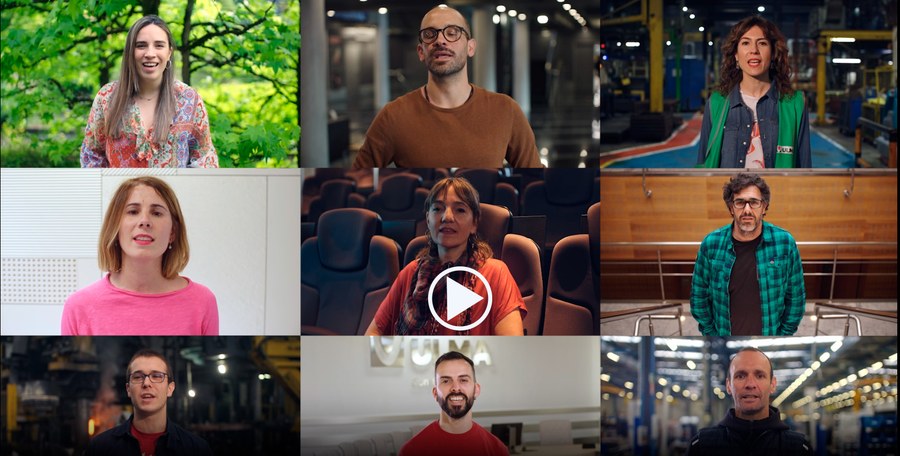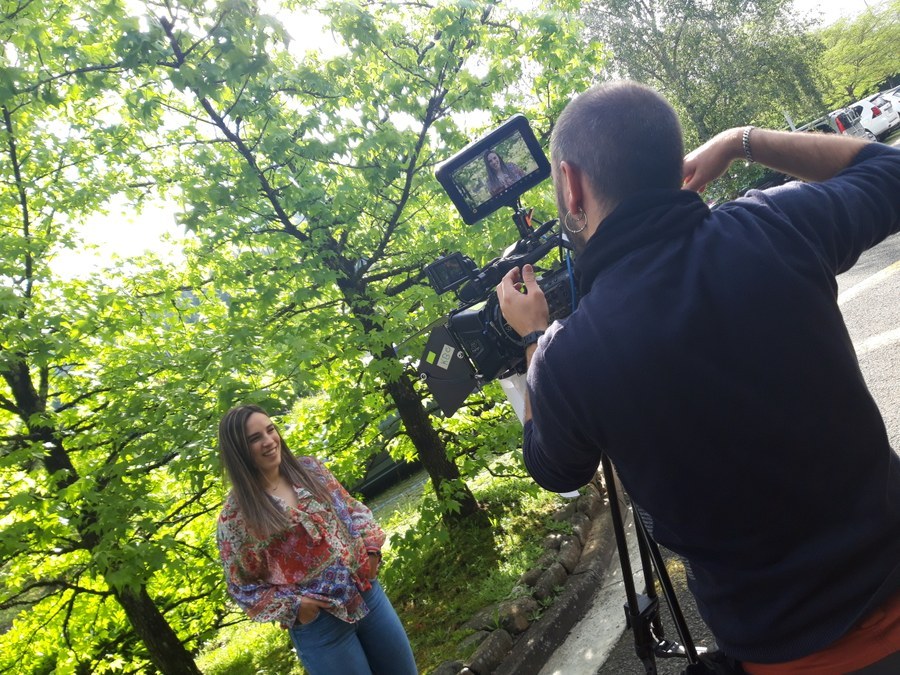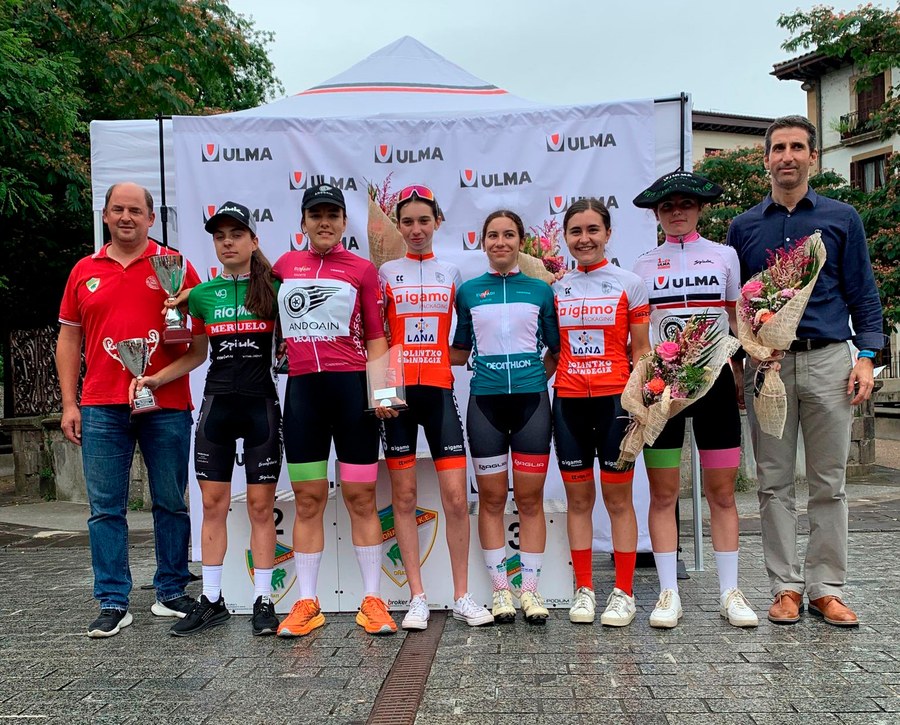The cooperative movement in general and ULMA in particular is something that is deeply rooted in these parts, after years and years of constant business and social evolution. And ULMA and the cooperative movement have been two of the most important agents for the change that has taken place in Oñati and the region in the last 50 years.
That is why we are aware of the importance of the ULMA Group, its values and the view of the world from the cooperative perspective. Values such as teamwork, cooperation, social development, participation and competitiveness are now and continue to be the keys to this exponential growth, in Oñati as well as anywhere ULMA is present.
But what does all this say about the partners and employees of ULMA offices? What do the people who have not had such close experience think?
ULMA intends to launch a series of reports that convey their perceptions and their views on the cooperative world, the reality of their day-to-day lives in their respective workplaces, the differences between a cooperative such as ULMA and other companies of different types. And all this from the perspective of partners and workers themselves, told in first person. Let’s go!
Do you think that ULMA is different from other companies? What differences do you observe?
> Juan Manuel Varela: Each company has its own personality. And this is related to the industry being targeted and, especially, the people within the company. Perhaps the biggest difference is the involvement of people in the project.
> Luis Miguel Jurado: Of course I notice it as I have since the first contact I had with ULMA Packaging, first in the Madrid office and later in Oñati. Later, with ULMA Polymer Concrete (now ULMA Architectural Solutions), more in-depth, both in interviews and on joining. The difference is, only in joining other companies, is not so defined. Coming from a limited liability or sole trader company, the organisation of the company and the valuation of people is noticeable.
What do you know about the cooperative world? How do you think it differs from more traditional companies?
> Juan Manuel Varela: I know a little about the history and evolution of the cooperative movement. Perhaps the most notable difference is in how a new business is set up and the support offered by other cooperatives when there are problems.
> Luis Miguel Jurado: Knowledge about the cooperative movement, before I joined ULMA, I knew about though a friend of Arrasate, who belonged to a cooperative, and he told me about the things that are important. It seemed like a different type of enterprise and more in line with my ideas.
Also, occasionally you read in the media about the MONDRAGON Corporation, how the model is studied in the rest of the world, etc. These are things that make you think. The biggest difference is in the workers and members of the cooperative, it makes them feel more, be more involved, make the most of where they work. In short, you can and should participate.
> Elena Martin: It is the cooperation between people working in the same company for a common purpose. Cooperative workers, through mutual support, must seek solutions to business problems through these collective decisions to manage the cooperative.
It differs from a traditional company in which partners have the same goal and objective, seeking common benefit. All partners have the same rights and obligations and the possibility to actively participate in company’s decisions, feeling more involved in and more responsible for it. However, in a traditional company that possibility is much smaller; the motivation for and involvement in it is undermined. Also, in the cooperative enterprise surplus can be returned to the partners, while in the traditional company the surplus corresponds to investors and the decision is only made by the owner.
How is the cooperative enterprise seen from afar? What is your overall impression?
> Juan Manuel Varela: Of course, it is much less intense than in the area. My impression is that the idea of cooperative enterprise is diluted with distance.
> Luis Miguel Jurado: This is a point that has always made me think, because being so far away, many aspects of the cooperative do not reach you; social activities, participation in various entities, etc. Of course, the doors are open and it depends on each one, even though they are outside, to become involved. The overall impression is very good, although from my point of view, I think we have to move forward, review this aspect, because we are increasingly partners who are distant from the headquarters.
> Elena Martin: The cooperative is a model unknown to us, since we live in a working environment in which it is not the predominant business mode. However, once you belong to the cooperative and understand the way of working and its overall vision, you feel the same as any cooperative worker at the plant.
The disadvantage from afar includes not knowing the businesses or divisions of the cooperative. But thanks to the Annual General Meeting, the BEGIRA magazine and the corporate website, we can get closer to ULMA, thus feeling like participants in the corporate reality of the cooperative.
Do you perceive the cooperative as an egalitarian and fairer company?
> Juan Manuel Varela: No, in some of the companies in which I have worked, issues such as dismissal, training or children’s studies were much more advanced. Also coming from outside, the small number of women in management positions or even in middle management has always surprised me.
> Luis Miguel Jurado: Yes, it is one of the aspects that is perceived first, being able to access the different bodies helps to have that idea. The information that is transmitted to partners helps us to have a say, to decide and already that makes us fairer and more egalitarian.
> Elena Martin: Yes, because the cooperative model is more equal in terms of salary and organisational structure, which favours the development of a more egalitarian society and, consequently, a fairer social system.
Do you feel you have decision-making power compared with other companies?
> Juan Manuel Varela: The difference is not significant. From my point of view the decision power is diluted depending on the size of the company.
> Luis Miguel Jurado: Each partner has decision power with his/her voting share, but other than that, there is an annual general meeting, in which in addition to all the information about the company, the company’s past as the future is also shared.
> Elena Martin: The decision power in cooperative enterprises lies essentially with the partners, while in other companies it is more hierarchical. The Annual General Meeting is one of the instruments we have for this purpose, given that the most important aspects of business management are decided democratically. Therefore, partners adopt essential agreements at this meeting, while in other companies there is no such possibility.
As for Corporate Social Responsibility (commitment to the environment, social welfare, development of the area), do you think ULMA does more in this respect than other companies?
> Juan Manuel Varela: Not always. This depends on many factors other than being a cooperative, a sole trader or a limited company; although the cooperative has a greater attachment to the area in which it was founded.
> Luis Miguel Jurado: Being at a distance, many of these issues do not reach us, although they are perceived. I think we do more than other companies and this is because of the union that we have, the group that we are made up of.
> Elena Martin: I understand that they are the basic principles of a cooperative, while in a non-cooperative business model they are not priority areas and sometimes are outside of the company. At ULMA the people and the environment in which they work are critical to the organisation and its responsibility is not limited to generating economic values but also social and environmental values.
As can be seen in the answers from each worker, there are opinions for all tastes. What is clear is that we have a long way to go. It is a road that ULMA wants to travel together with its workers, who are its main value, the people it is made up of.
